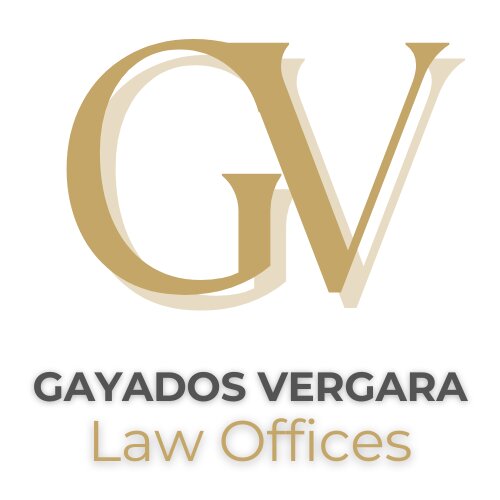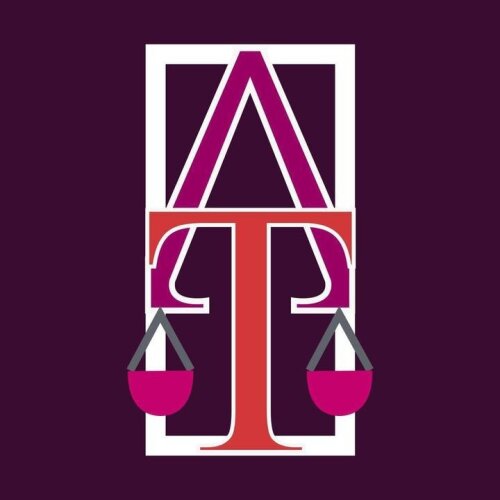Best Bail Bond Service Lawyers in Philippines
Share your needs with us, get contacted by law firms.
Free. Takes 2 min.
Or refine your search by selecting a city:
List of the best lawyers in Philippines
About Bail Bond Service Law in Philippines
The bail bond service in the Philippines is an essential aspect of the criminal justice system, providing defendants an opportunity to ensure their temporary liberty while facing prosecution. The primary legal framework governing bail bonds is stipulated in the Revised Penal Code and other relevant laws. Typically, when an individual is arrested for committing a bailable offense, they can apply for bail, which is a form of security or surety given in exchange for their release. The court determines the bail amount, considering factors such as the severity of the offense and the defendant’s flight risk.
Why You May Need a Lawyer
Engaging with a lawyer when dealing with bail bond services can be crucial for several reasons:
- Understanding Legal Rights: A lawyer will ensure you understand your rights and the legal procedures involved.
- Advocacy in Court: They can represent you in court to argue for reasonable bail terms.
- Documentation and Compliance: Lawyers assist in the proper preparation and submission of documents, ensuring all legal requirements are met.
- Reducing Risk: Legal experts help mitigate risks of unnecessary detention due to procedural errors or misunderstandings.
Local Laws Overview
The Philippine legal system provides specific guidelines on bail under the Revised Penal Code and the Rules of Court, particularly Rule 114 on Bail. Key aspects include:
- Bailable Offenses: Certain crimes are eligible for bail based on their classification as bailable under the law.
- Bail Amount: The court sets the amount, considering the crime's circumstances, including the nature of the charge and the defendant’s financial capacity.
- Conditions of Bail: These may include restrictions on travel, reporting requirements, or other conditions imposed by the court.
- Types of Bail: Recognizance, cash, property bond, corporate surety bond, and other forms acknowledged by the court.
Frequently Asked Questions
What is a bail bond?
A bail bond is a form of security posted by a defendant to ensure their appearance before the court upon release from custody.
How is the bail amount determined?
The bail amount is determined by the court based on the offense's gravity, the defendant's background, potential flight risk, and threat to public safety.
Can all crimes be bailed out?
Not all crimes are bailable. Serious offenses such as murder may not be eligible for bail under certain conditions.
What happens if the terms of bail are violated?
If the conditions of bail are violated, the court may revoke the bail and order the arrest of the defendant.
What is the role of a surety in bail?
A surety is an individual or entity that provides the court with a guarantee of the defendant’s compliance with bail conditions and appearance in court.
Are bail bond services private or government-run?
Bail bond services can be provided by private entities approved by the courts, in addition to cash bail that can be paid directly to the court.
How long does the bail process take?
The time frame for posting bail can vary depending on the court's schedule, documentation required, and approval process attributes.
Can bail be denied?
Yes, bail can be denied for non-bailable offenses, risk of flight, threats to public safety, or if the defendant has a record of violating bail terms.
What is recognizance?
Recognizance is a type of bail where the defendant is released on their own promise to appear in court, having no financial requirement.
Is it possible to reduce the bail amount?
A bail reduction can be requested through a motion filed by the defendant's lawyer, justifying the request with valid reasons like capacity to pay and fairness considerations.
Additional Resources
Several resources can aid individuals in understanding and navigating bail bond services in the Philippines:
- Public Attorney’s Office (PAO): Provides legal assistance and representation, especially for indigent clients.
- Integrated Bar of the Philippines (IBP): Can help connect individuals to qualified legal professionals.
- Department of Justice: Offers resources and guidance on legal rights, including bail procedures.
Next Steps
If you require legal assistance with bail bond services in the Philippines, consider taking the following steps:
- Assess Your Situation: Understand the specifics of your case and the bail process relevant to you.
- Consult a Lawyer: Reach out to a legal professional knowledgeable in criminal procedure and bail issues.
- Gather Necessary Documentation: Prepare all relevant documents, such as arrest records and personal information, for your lawyer.
- Understand Your Options: Discuss with your lawyer all possible bail options and strategies for your case.
- Follow Legal Proceedings: Ensure compliance with all court orders and conditions attached to your bail.
Lawzana helps you find the best lawyers and law firms in Philippines through a curated and pre-screened list of qualified legal professionals. Our platform offers rankings and detailed profiles of attorneys and law firms, allowing you to compare based on practice areas, including Bail Bond Service, experience, and client feedback.
Each profile includes a description of the firm's areas of practice, client reviews, team members and partners, year of establishment, spoken languages, office locations, contact information, social media presence, and any published articles or resources. Most firms on our platform speak English and are experienced in both local and international legal matters.
Get a quote from top-rated law firms in Philippines — quickly, securely, and without unnecessary hassle.
Disclaimer:
The information provided on this page is for general informational purposes only and does not constitute legal advice. While we strive to ensure the accuracy and relevance of the content, legal information may change over time, and interpretations of the law can vary. You should always consult with a qualified legal professional for advice specific to your situation.
We disclaim all liability for actions taken or not taken based on the content of this page. If you believe any information is incorrect or outdated, please contact us, and we will review and update it where appropriate.
Browse bail bond service law firms by city in Philippines
Refine your search by selecting a city.

















